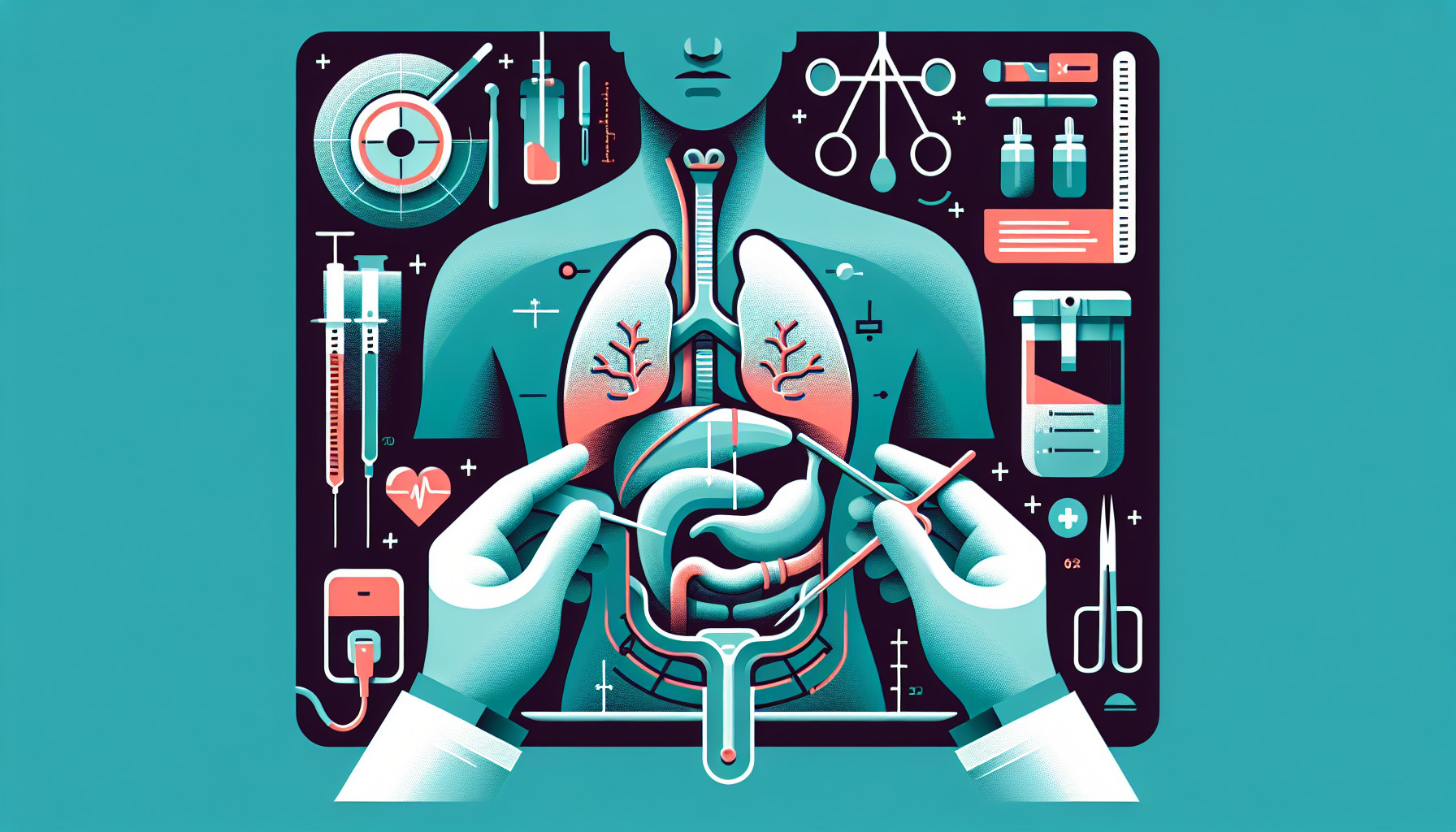Our Summary
The research paper discusses advancements in treating type 1 diabetes, a disease characterized by high blood sugar levels. Currently, the only known cure is through a pancreas or islet transplant. Since the first successful pancreas transplant in 1966, there have been improvements in both the surgical method and in the drugs used to prevent the body from rejecting the new organ, leading to better patient outcomes.
The paper also looks at ongoing research into how to monitor the transplant and new biological markers that could help transplants last longer. However, not all patients with type 1 diabetes are eligible for these transplants, which leaves a large number of people in need of alternative treatments.
Over the past 50 years, there have been significant leaps in other technologies for treating diabetes, some of which are still experimental, while others are already being used in some countries. For example, automated insulin delivery systems, which inject insulin into the body automatically, have improved a lot, but they still can’t control blood sugar levels as well as a successful transplant can.
The paper also mentions the potential of stem cell therapy, but notes that it’s still in experimental stages. It concludes by asking whether we might be entering a period where whole organ pancreas transplants could be replaced entirely by these new technological therapies.
FAQs
- What are the current advancements in treating type 1 diabetes as mentioned in the research paper?
- What are the advancements made in pancreas transplant since the first successful one in 1966?
- What are the potential alternative treatments for type 1 diabetes mentioned in the research paper?
Doctor’s Tip
A helpful tip a doctor might tell a patient about pancreas transplant is to carefully follow the post-transplant medication regimen to prevent rejection of the new organ. It is important to attend all follow-up appointments and communicate any changes in symptoms or concerns to your medical team. Additionally, maintaining a healthy lifestyle through diet and exercise can help support the success of the transplant.
Suitable For
Patients who are typically recommended for pancreas transplant are those with type 1 diabetes who have difficulty managing their blood sugar levels with insulin therapy alone. These patients may experience severe hypoglycemic episodes, have complications from diabetes such as kidney disease or vision problems, or have other medical conditions that make insulin therapy less effective. Additionally, patients who have had a kidney transplant or are in need of a kidney transplant may also be recommended for a simultaneous pancreas-kidney transplant.
Overall, pancreas transplant is recommended for patients with type 1 diabetes who have complications from the disease and who have not been able to achieve good blood sugar control with insulin therapy alone.
Timeline
Before a pancreas transplant, a patient typically undergoes extensive testing to determine their eligibility for the procedure. This includes blood tests, imaging scans, and consultations with various specialists. Once approved for a transplant, the patient is placed on a waiting list for a suitable donor pancreas.
After receiving a pancreas transplant, the patient will need to stay in the hospital for a period of time to monitor for any complications and ensure the new organ is functioning properly. They will also need to take immunosuppressant medications for the rest of their life to prevent rejection of the transplant.
In the weeks and months following the transplant, the patient will have frequent follow-up appointments with their transplant team to monitor their progress and adjust medications as needed. They will also need to make lifestyle changes, such as following a healthy diet and getting regular exercise, to maintain their overall health and support the success of the transplant.
Overall, a pancreas transplant can greatly improve the quality of life for patients with type 1 diabetes, allowing them to better control their blood sugar levels and reduce their risk of complications associated with the disease. However, it is not without risks, and patients must be committed to following their treatment plan and attending regular check-ups to ensure the long-term success of the transplant.
What to Ask Your Doctor
Some questions a patient should ask their doctor about pancreas transplant include:
- Am I a suitable candidate for a pancreas transplant?
- What are the risks and benefits of having a pancreas transplant?
- How long is the recovery process after a pancreas transplant?
- What medications will I need to take after the transplant to prevent rejection?
- What are the potential complications of a pancreas transplant?
- How will the transplant impact my overall health and quality of life?
- How often will I need to follow up with my transplant team after the procedure?
- Are there any alternative treatments or therapies I should consider before opting for a pancreas transplant?
- How successful are pancreas transplants in treating type 1 diabetes in the long term?
- Are there any ongoing clinical trials or research studies that I may be eligible to participate in for pancreas transplants?
Reference
Authors: Al-Naseem AO, Attia A, Gonnah AR, Al-Naseem AOAS, Spiers HVM, Gruessner A, Leelarathna L, Thabit H, Augustine T. Journal: Eur J Endocrinol. 2023 Apr 5;188(4):R73-R87. doi: 10.1093/ejendo/lvad032. PMID: 36929837
